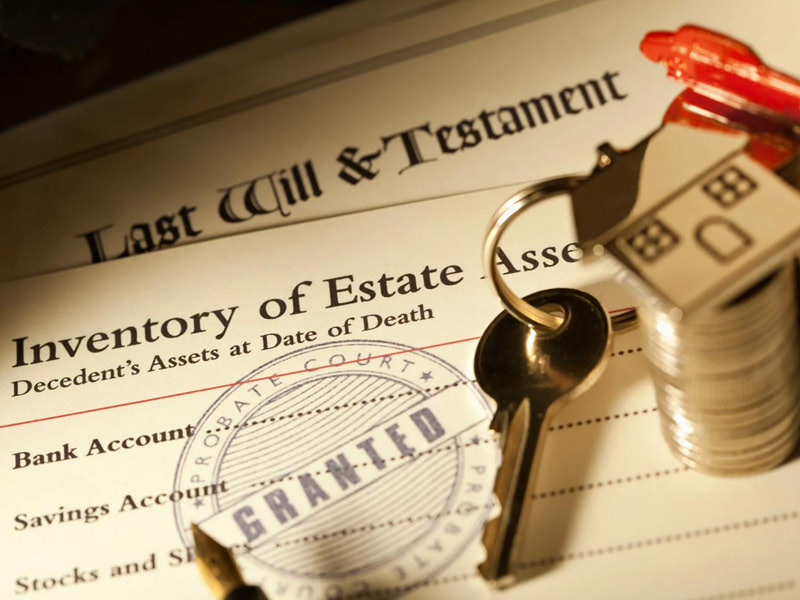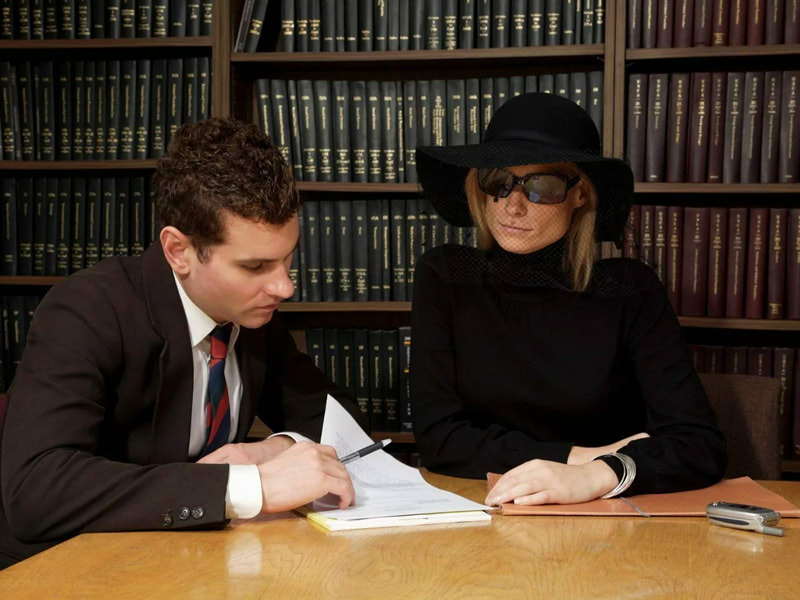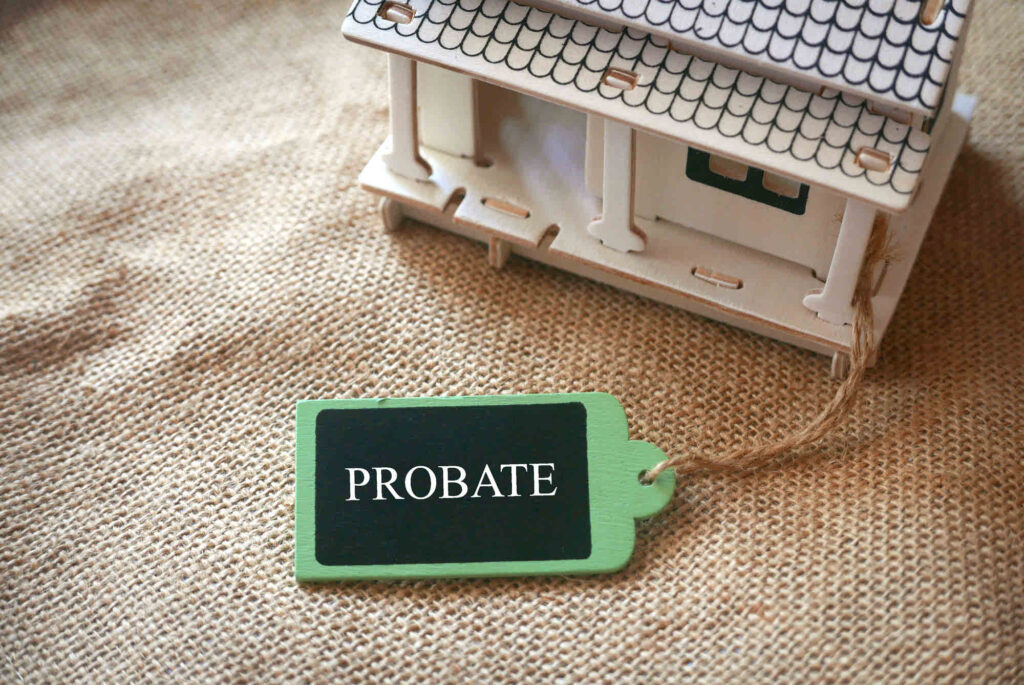Table of content
- Who Manages the Deceased Estate?
- How to Open an Estate Bank Account in Australia?
- How to Close a Bank Account When Someone Dies?
- What Happens If The Debts Cannot Be Discharged?
- Who Inherits if no Will in Queensland?
- Can you Dispute an Estate Distribution where there is No Will?
- How Long Does an Executor Have to Settle an Estate in Queensland?
- What if the Original Will of the Deceased is held by a Different Law Firm?
- What if I’ve Lost the Original Will?
- What is Safe Custody?
- What are the Requirements for a Valid Will in QLD?
Coping with the loss of a close friend or family member is never a simple task, and navigating the management of their estate is a reality that many of us might encounter eventually. Acquiring some understanding of this process ahead of time could potentially alleviate some of the associated burdens.
Upon an individual’s passing, their possessions and obligations collectively constitute their estate. These possessions encompass valuable assets like property, automobiles, investments, and shares. Even domestic pets are regarded as assets within a deceased estate for distribution purposes.

The estate of a deceased person encompasses all the assets and debts they possessed at the time of their demise.
Assets may encompass:
- Bank accounts
- Investment holdings
- Superannuation and life insurance policies
- Real estate, including nursing home bonds or retirement village leases
- Personal items like furniture and jewelry
Liabilities might involve mortgages, credit card debts, and personal loans. Ordinarily, these obligations are settled using estate assets prior to the distribution of assets to the beneficiaries.
The article below provides answers to the main questions related to the deceased estate.

Who Manages the Deceased Estate?
A will should designate one or more executors who will assume the role of managing the deceased individual’s estate. The person or persons to take on this responsibility will be indicated in the deceased person’s will if such a document exists.
The legal personal representative ensures that the final wishes of the deceased are carried out. Some of the tasks falling under their purview include:
- Arranging the funeral
- Securing a death certificate
- Initiating the probate or letters of the administration process
- Settling debts and addressing income tax matters in compliance with regional regulations
- Informing relevant bodies, such as the Australian Taxation Office (ATO) and other governmental entities
As a general practice, an executor is responsible for settling all the outstanding debts of the deceased before proceeding with the distribution of assets to beneficiaries listed in the will. It’s important to note that there’s an exception to this practice: the superannuation death benefits and life insurance funds of the deceased cannot be utilized to settle the debts of the estate. All other assets of the deceased estate are at the disposal of the executor for the purpose of debt settlement, irrespective of the will’s instructions concerning the allocation of specific assets. Consequently, an executor lacks the authority, for example, to bestow a mortgage-free property to a beneficiary if other debts within the estate necessitate the property’s sale for debt clearance.
It’s vital to grasp that wills are instruments exclusively concerned with the allocation of property. While parents often include guidance in their wills regarding the guardianship of minor children, these instructions hold no legally binding status and essentially convey the deceased’s preferences in a convenient manner.
In the absence of a valid will, an individual is deemed to have died intestate, triggering a complex, lengthy, and potentially costly process of estate distribution as dictated by the law. Without a designated executor in a will, the deceased loses the capacity to determine who will shoulder the responsibility of managing their estate after their passing.

How to Open an Estate Bank Account in Australia?
A deceased estate bank account can be established at any banking institution. All Executors/Administrators/next of kin are required to personally visit their chosen branch with the official Death Certificate and Will (if applicable), and inform the staff about their intention to open an ‘Estate of’ account.
In order to initiate the account opening process, the executor should:
- Present formal confirmation of the individual’s passing, which can take the form of a death certificate.
- Validate their identity through documents like a Passport or Driver’s License.
- Validate their current address.
- Possess an original or validated copy of the Will, Letters of Administration, or Grant of Probate (Additional details regarding Grant of Probate and Letters of Administration can be found here).
It is advisable to consult with your bank to ascertain whether there are any specific prerequisites in place.

How to Close a Bank Account When Someone Dies?
When a close friend or family member passes away, a multitude of tasks may fall upon you to resolve, and one of them could be the closure of their bank accounts, including checking, savings, and CDs. This is especially relevant when these funds are required for covering funeral costs or settling the deceased person’s outstanding debts. Although the process of closing a bank account under these circumstances isn’t always straightforward, having the appropriate documentation can make it manageable.
To close a bank account on behalf of a deceased individual, you must possess the legal authority to manage the account. For instance, are you a joint account holder? Alternatively, have you obtained authorization from a court or judge, backed by the necessary paperwork (such as a detailed Letter of Testamentary, further elaborated below), that validates your right to access the account? Presented below is an outline of the documentation you will require to close a bank account after the passing of a loved one.
- Essential Identification & Documentation:
- A valid form of identification, such as a state-issued driver’s license or ID card, U.S. passport, or military ID.
- Proof of the individual’s demise, such as officially certified copies of the death certificate.
- Documentation relating to the account and its holder, including the full legal name, Social Security number, and account number of the deceased.
- Proof of Authorization to Act on Behalf of the Estate:
You’ll also need to provide evidence demonstrating your authorization to act on behalf of the estate. The particular documentation necessary hinges on your legal connection to the deceased, as exemplified in the scenarios below.
- If you are a joint account holder: If you share joint ownership of the account, the process of closing the account is typically straightforward. This is because most banks establish joint accounts with Rights of Survivorship (JWROS), meaning that upon one co-owner’s passing, the other becomes the sole proprietor of the account.
- If you hold power of attorney: Power of Attorney (POA) bestows temporary or permanent legal authority upon an individual to make decisions on behalf of another adult, often utilized for an aging parent or loved one. Nonetheless, a POA cannot be employed to close a bank account after the principal (the person granting authority) passes away, as a POA ceases upon the principal’s death. To manage financial matters posthumously, the person named in the Power of Attorney document will either need to be designated as the estate’s executor or petition to become the estate’s administrator.
- If you are the trustee of the deceased: If your loved one established a living trust, the checking account may be registered under the trust’s name. Should you be named as the successor trustee (responsible for the trust after the original trustee’s death), you ought to inform the bank of the initial trustee’s passing. You will also be required to present a certified copy of the death certificate. Furthermore, the bank will need to see a copy of the Certificate of Trust designating the successor trustee, and there will be forms to complete.
- If you are the executor: Closing single-holder accounts can be more intricate compared to joint accounts or those established under a trust’s name. Legally, only the account owner possesses the right to access the funds, even after death. A court order is necessary to authorize someone else to withdraw money and close the account. If you are designated as the executor in the deceased individual’s will, you must furnish evidence of your executor status and provide a certified copy of the death certificate for the bank to grant access to the account.
- Sometimes, a bank might set up a checking account as Payable-on-death (POD). In this case, the account owner designates a beneficiary who inherits the account’s funds upon their death. While the beneficiary cannot access the account during the owner’s lifetime, they assume ownership upon the owner’s demise. In such instances, a visit to the bank with valid identification and a certified copy of the death certificate should suffice. This will grant you access to the account and enable you to withdraw the funds as needed.
If a will is absent or the designated person to handle the estate isn’t specified in the will, you must seek permission from the probate court to initiate the account closure. In cases where a will is available yet lacks a named executor, the court will issue a document known as a Letter of Testamentary. However, when no will is present, the court will provide what is known as a Letter of Administration.

What Happens If The Debts Cannot Be Discharged?
In cases where the estate lacks sufficient assets to cover the debts owed at the time of the individual’s passing, the executor will follow either bankruptcy regulations or the provisions applicable to insolvent estates to address these debts. Thankfully, unless a family member had taken on roles such as a guarantor, co-owner, or joint borrower, they are not obligated to assume the responsibility of repaying the debts left by the deceased.
The guidelines established for bankruptcy and insolvency estates prioritize several aspects. First and foremost, funeral expenses, testamentary costs, and administrative fees take precedence. Subsequently, the executor addresses both current and past tax debts, irrespective of any directives outlined in the deceased’s will. Following this, secured debts like home or car loans are cleared. The estate also gives priority to resolving overdue child support payments and making arrangements for ongoing child support obligations in cases involving dependent children. In the event of an outstanding HECS-HELP education debt at the time of death, the remaining balance of the debt is extinguished.
If the estate is insolvent, it’s unsecured debts (those debts that remain after expenses for funerals, expenses for wills, etc.) that are most likely to remain unpaid. This situation can be particularly complex when family members have extended significant unsecured loans for endeavors such as home purchases or business investments. This underscores the importance of formalizing and registering family loans against the appropriate security, addressing one of the numerous reasons for doing so.

Who Inherits if No Will in Queensland?
When an individual passes away without a legally valid will, the rules of intestacy as outlined in the Succession Act 1981 (Qld) dictate the distribution of the deceased person’s estate.
In the event of dying intestate in Queensland, a specific framework comes into play. The surviving spouse will receive the initial $150,000 of the estate along with all household chattels. Moreover, if there are multiple children, the spouse obtains one-third of the remaining estate, while the children share the remaining two-thirds. When there’s only one child, the spouse gains possession of all household chattels and half of the remainder exceeding $150,000. In scenarios devoid of a surviving spouse or children, an order of inheritance is followed based on the established list of eligible individuals who can apply for estate administration.
These rules remain applicable regardless of whether the distribution leaves the surviving spouse with inadequate funds to maintain their standard of living. Moreover, even if the deceased had a strained relationship with a child and expressed a wish for them not to receive any portion of the estate, these rules still govern the distribution.
Further complexities emerge when the deceased might have been separated from their spouse but hadn’t acquired a divorce before their passing. In such situations, the law considers the deceased as still married, thereby entitling the estranged spouse to a share of the estate under the intestacy regulations.
Another consideration pertains to proving the ‘de facto’ status of a relationship. For the partner to have a claim on the deceased’s estate in the case of intestacy, the couple must have cohabited as a domestic couple for a continuous span of at least two years, culminating with the death of the deceased.
The court takes into account various factors to ascertain the de facto nature of the relationship. These factors encompass the shared living arrangements, duration of the relationship, presence or absence of a sexual relationship, presence of children, financial interdependence, degree of mutual commitment to a shared life, and other relevant aspects.
Since April 1, 2003, the term “de facto partner” includes same-sex couples for cases of death subsequent to that date.

Can you Dispute an Estate Distribution where there is No Will?
Challenging the distribution of an estate left by an individual who passed away intestate is indeed possible. However, the individual contesting the distribution must demonstrate their relationship as a spouse, child, or dependent of the deceased, as defined by the Succession Act. Additionally, they need to establish that the estate’s distribution inadequately addressed their essential needs.
Such applications often arise from individuals like step-children, de facto partners, and other financially reliant individuals who share a connection with the deceased. Several factors are considered when determining if you should receive provisions from the estate:
- Your current life circumstances encompassing financial status, health, family commitments, and more.
- Whether the deceased held a moral duty or obligation towards you.
- The extent to which you depended on the deceased for support.
- Any reasons that might shed light on why the deceased did not include you in their will.
How Long Does an Executor Have to Settle an Estate in Queensland?
Although there isn’t a rigid timeframe, the executor is bound by a fiduciary responsibility to manage the estate promptly and effectively.
Considering the potential bottlenecks in probate application processing, it is advisable for executors to initiate the probate application at their earliest convenience. This advice holds particular significance due to the “executor’s year” principle, which establishes a general one-year timeframe for executors to carry out estate administration tasks. Beyond this period, beneficiaries might be entitled to interest.

What if the Original Will of the Deceased is held by a Different Law Firm?
We can secure the original will from any law firms that possess it, provided we have the consent of the executors designated in the will.
Even if the will explicitly designates a specific lawyer or law firm, it’s widely understood that such stipulations are not legally binding.
What if I’ve Lost the Original Will?
In the event that only a photocopy or digital scan of the will can be located, you have the option to petition the Supreme Court of Queensland to obtain a judge’s authorization for the probate of a duplicate will. This process entails technical intricacies, including presenting evidence to challenge the court’s presumption that the will was deliberately destroyed by the will-maker.

What is Safe Custody?
Safe Custody refers to the secure storage of essential documents and valuable possessions. Clients commonly entrust banks with items such as property deeds, a Will, and various other valuable documents for safekeeping. If you need to retrieve your Will from a safety deposit box, you’ll be required to present at least one of the specified proofs of death documents. Accessing the safety deposit box involves the presence of two bank representatives, and the Will can only be removed if you are named as the Will’s Executor or can establish your authorized status as a nominee of the Executor/s.
What are the Requirements for a Valid Will in QLD?
In Queensland, a formally valid will must meet the following criteria:
- It must be written or typed.
- It must be signed by the deceased individual.
- It must have a date of creation.
- It must be witnessed by a minimum of two individuals. These witnesses must all be present at the same time as each other and the executor.
If you have questions about the preparation of the will or if your relative has not left the will and you need some legal assistance, you can call us at 1300 185 636 or contact us here. Our team has been working in Queensland for more than 25 years and has set experience in solving Wills problems. You can contact us online or come to one of our Brisbane offices.
You can also read:
When is the right time to consider making a Will with a solicitor in Brisbane?


